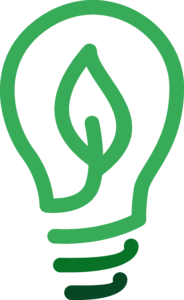FAQ Page
How do solar panels work?
Solar panels consist of photovoltaic cells made of semiconductor materials such as silicon. When sunlight hits the PV cells, it causes the electrons in the silicon to become excited and move around, generating an electric current. This current is captured by metal wires on the surface of the PV cells and sent through an inverter, which converts it into usable alternating current (AC) electricity.
What are the different types of solar panels?
There are two main types of solar panels: monocrystalline and polycrystalline. Monocrystalline solar panels are made from a single, pure crystal of silicon and are typically more efficient and more expensive than polycrystalline panels. Polycrystalline panels are made from multiple silicon crystals and are generally less efficient but also less expensive.
How much do solar panels cost?
The cost of solar panels varies depending on the size of the system and the type of panels used. On average, a solar panel system can cost between $10,000 and $30,000, but many states offer incentives such as tax credits and rebates that can significantly reduce the upfront cost.
How long do solar panels last?
Solar panels have a relatively long lifespan, with many panels lasting 20-25 years or more. They require little maintenance, as they have no moving parts and can be easily cleaned with a hose or a soft cloth.
Can solar panels be used in any location?
Solar panels can be used in any location that receives sufficient sunlight. However, they are most effective in sunny and warm climates, as the panels will generate more electricity in these conditions.
How much electricity can solar panels generate?
The amount of electricity that solar panels can generate depends on several factors, including the size of the panel system, the orientation and angle of the panels, and the amount of sunlight the panels receive. On average, a solar panel system can generate between 500 and 1,000 kilowatt-hours (kWh) of electricity per year, depending on these factors.
Can solar panels power my entire home?
It is possible for solar panels to power an entire home, but it depends on the size of the panel system and the energy needs of the home. A larger panel system may be needed to meet the energy needs of a larger home or a home with high energy consumption.
Can I sell excess electricity back to the grid?
Many states allow homeowners with solar panel systems to sell excess electricity back to the grid through a process called net metering. This can help offset the cost of your solar panel system and potentially even earn you money.
What happens if there is a power outage?
During a power outage, your solar panel system will not be able to generate electricity. However, if you have a battery storage system, it can provide backup power for a limited time.
Are solar panels environmentally friendly?
Yes, solar panels are a clean and renewable energy source that generates electricity without producing greenhouse gases or other harmful emissions. They are a environmentally friendly way to generate electricity and reduce our reliance on fossil fuels.
Green Energy Buddy
Areas covered
Brisbane
Gold Coast
Sunshine Coast
Sydney
Byron Bay
Contact
sales@greenenergybuddy.com
© Copyright Green Energy Buddy 2023. All Rights Reserved
